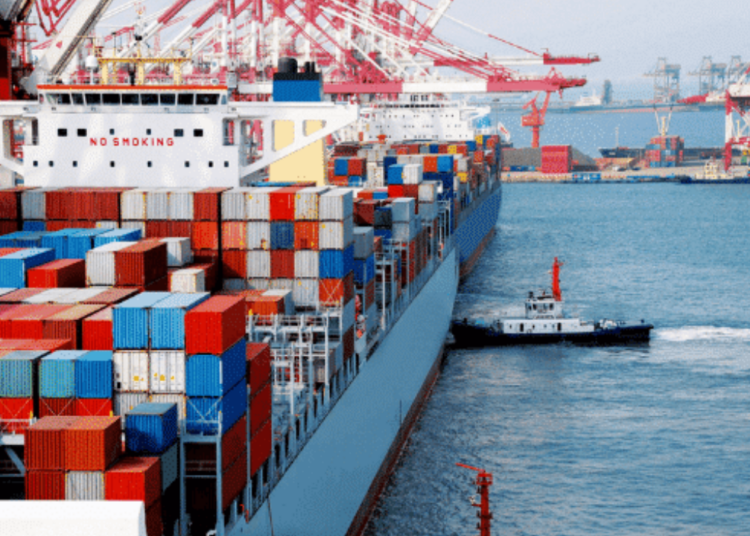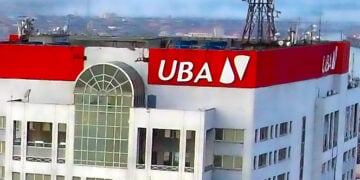The Port Standing Task Team (PSTT), has disclosed that the reduction of vessels waiting time at Nigerian seaports have saved the nation’s economy a whooping N5.4billion ($12.35m) yearly.
LEADERSHIP reports that before now, vessels spend about 21 days at berth due to alleged sharp practices by government agencies boarding vessels who most time demand gratification from ship masters and lack of automation.
Speaking at the meeting of the enlarged task team in Lagos, yesterday, the national Coordinator, PSTT, Moses Fadipe, said, between January 2021 and 2022, $20,000 was saved daily from demurrage to foreign ship owners by the country.
He also disclosed that in 2021, over 85 percent of vessels that call at the nation’s seaports left without any incident.
According to him, there have been reduction in extortion by both states and non-states actors and free movement along the port corridor.
He said: “implementation so far has shown progressive cost recovery in billions of naira. The economy has saved an average vessel demurrage of $20,000 per day between the years 2021 and 2022 which ultimately translated to the sum of $12,350,000 which is over N5.4 billion at today’s official exchange rate. More than 85% of vessels that called at Nigerian ports and terminals left without incident in 2021.
“There are drastic reduction in incidences of extortions by both state and non-state actors, and freer movement of vehicles and persons along the ports’ logistics ring. Even though revenue generation is not the primary concern of the task team, deterrence through fines is one of the tools through which we are able to record our successes of ‘operation free the port corridors.
“Improved cargo dwell time, Ship Turn-around Time, Berth Occupancy Rate Efficiency, Speedy cargo delivery, reduce congestion, and created more space thereby increasing the efficiency of the yard capacity.
“Reduced under-the-table cost of cargo clearance at the ports (illegal demands in the ports) and eliminate bureaucratic bottlenecks faced by port users thereby improving duty collection.”
Fadipe further disclosed that in the year under review, the team generated money into the Treasury Single Account (TSA), of the federal government.
“In the process, revenues to the tone of N1.023million have accrued to the FG’s TSA through fines. The task team cannot ascertain how much was generated to the FG through vehicle documents regularization, however, a lot has also accrued to the government in that regard,” Fadipe pointed out.
Fadipe also disclosed that the Vice-president, Yemi Osinbajo, last year received an award on behalf of the federal government for improvement of vessel dwell time at the nation’s seaports.
He also stated that some African, Asian and European countries are expressing interest to understudy the activities of the PSTT to replicate it in their country.
“A frontline industry civil society group, Convention on Business Integrity (CBi), has been on the track with our activities. The task team and CBi have been part of a number of advocacy and action programmes that recently won the nation the first-ever ‘Outstanding Achievement in Collective Action Award’ of the Switzerland-based Basel Institute on Governance. This award was recently received by the Vice President on behalf of the Federal Government.
“Indeed, the narrative is fast changing as excitedly alluded to by the Vice President at the launch of the Process Manual in December 2020. According to the Co-founder of CBi, the success recorded is now attracting international reviews as countries such as Egypt, Ukraine and India are planning to adopt the ‘Nigerian miracle’ model to produce similar gains in their own ports’ operations.
“Through our model of establishing a real-time Anti-Corruption PSSP/ Help Desk in Nigerian Ports and ensuring that the provision of the Manual on Joint Boarding of vessels is strictly adhered to, there has been an unprecedented decline in the number of vessel infractions,
“The previous pervasive practice of slamming un-receipted charges on captains on allegations of infractions that were often fictitious has drastically reduced. This level of transparency is also being exported to terminal operations and the entire port logistic hub operations including activities on the port logistics ring,” he stated.
We’ve got the edge. Get real-time reports, breaking scoops, and exclusive angles delivered straight to your phone. Don’t settle for stale news. Join LEADERSHIP NEWS on WhatsApp for 24/7 updates →
Join Our WhatsApp Channel










